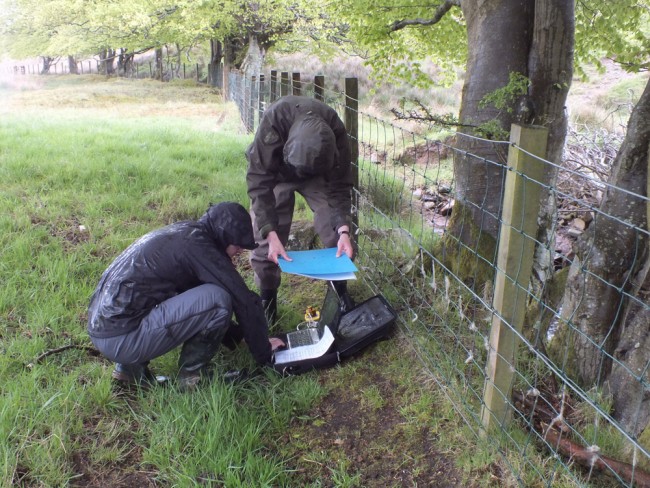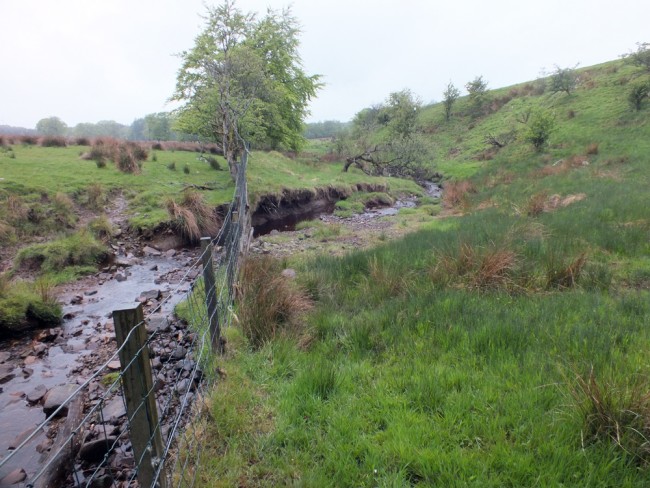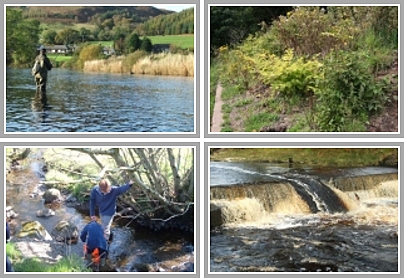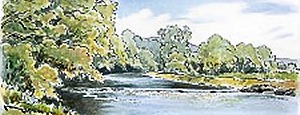Nearly one year on from when we installed temperature data loggers across the river Ayr catchment to assess long term changes in water temperatures driven by Global Warming, we returned today to download the data. Unfortunately the rain was pelting down and this doesn’t make the task easy when we have to take a laptop into the field to record the results.
Muir and I were accompanied by Daniel, (our work experience pupil from Loudon Academy) who proved very useful, shielding the computer from the rain. I think Daniel has enjoyed the variety of work we do so far and I hope it will encourage him to follow his carer plan into Marine biology.
We only managed two sites this afternoon but will return to the task tomorrow to download the rest of the data. It is interesting to visit very small tributaries such as the Blairkibboch Burn near Sorn which more or less falls off our radar for routine monitoring as it doesn’t contain migratory species much above the confluence with the Burn O’Need. In the headwaters, where the data logger was situated, livestock erosion was obvious and is having a detrimental impact on water quality. Often people assume that sheep are less damaging than cattle but this isn’t really the case as they crop the pasture much closer than cows which reduces root development and increases bank instability. I will enquire whether fencing was suggested by SEPA during their walkover visits. To date, nothing has been done and I believe it would be beneficial for water quality on the Burn O’Need where salmon and trout numbers could be improved.
The other site we visited was on the Cleugh Burn that enters the Ayr at Sorn Castle. Similar to the Blairkibboch Burn, this burn is unfenced in places and field ditches and livestock grazing contribute to the sediment load reaching the Ayr. In contrast to the unfenced areas, a small woodland was fenced along the burn margins and the habitat and river banks were much improved.
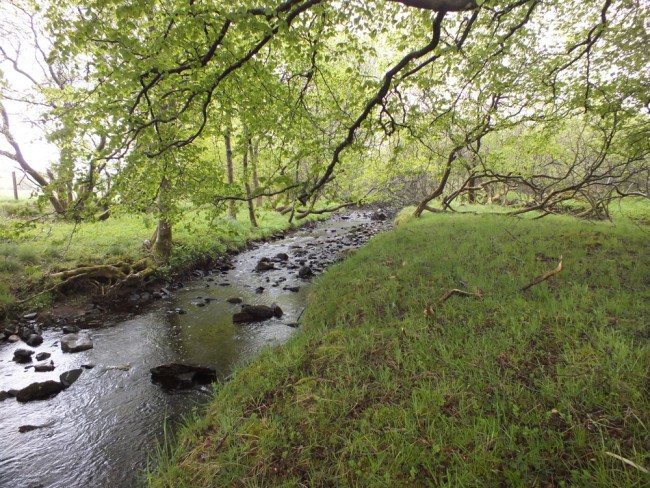
This fenced woodland is of much more value to the fish and water quality than unfenced and grazed areas.
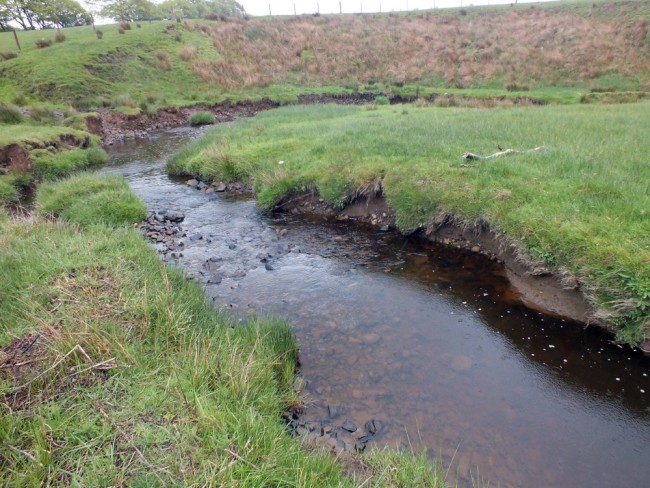
Only 50m downstream of the last photo of the woodland and the habitat quality is much reduced. Fencing and hardwood tree planting could easily improve productivity and water quality in this burn.
Tomorrow’s another day and hopefully it will be dry and allow us to get round the remaining sites. The data collected will feed into a Scotland wide assessment of the impacts of climate change on water temperature and is being undertaken as part of a PhD. I’m looking forwards to seeing the end paper and changes that occur over the rest of my working career. This has to be a long term study but should be very worthwhile.
